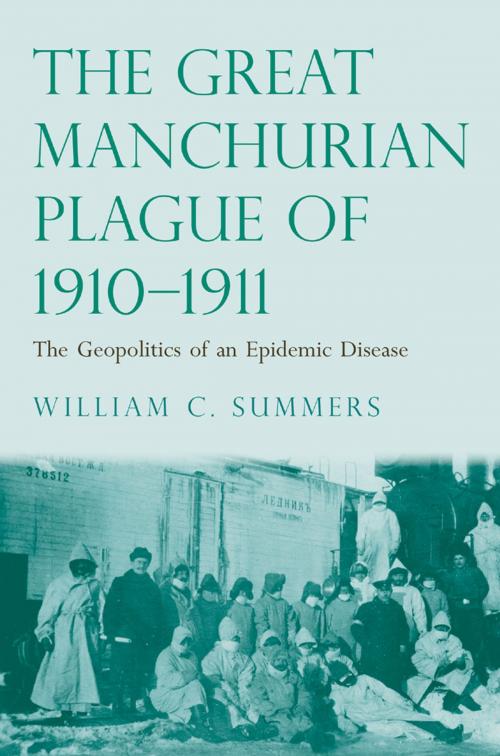The Great Manchurian Plague of 1910-1911
The Geopolitics of an Epidemic Disease
Nonfiction, Health & Well Being, Medical, Ailments & Diseases, Infectious Diseases, Epidemiology, Reference, History| Author: | Dr. William C. Summers, M.D. | ISBN: | 9780300184761 |
| Publisher: | Yale University Press | Publication: | December 11, 2012 |
| Imprint: | Yale University Press | Language: | English |
| Author: | Dr. William C. Summers, M.D. |
| ISBN: | 9780300184761 |
| Publisher: | Yale University Press |
| Publication: | December 11, 2012 |
| Imprint: | Yale University Press |
| Language: | English |
When plague broke out in Manchuria in 1910 as a result of transmission from marmots to humans, it struck a region struggling with the introduction of Western medicine, as well as with the interactions of three different national powers: Chinese, Japanese, and Russian. In this fascinating case history, William Summers relates how this plague killed as many as 60,000 people in less than a year, and uses the analysis to examine the actions and interactions of the multinational doctors, politicians, and ordinary residents who responded to it.
Summers covers the complex political and economic background of early twentieth-century Manchuria and then moves on to the plague itself, addressing the various contested stories of the plague’s origins, development, and ecological ties. Ultimately, Summers shows how, because of Manchuria’s importance to the world powers of its day, the plague brought together resources, knowledge, and people in ways that enacted in miniature the triumphs and challenges of transnational medical projects such as the World Health Organization.
When plague broke out in Manchuria in 1910 as a result of transmission from marmots to humans, it struck a region struggling with the introduction of Western medicine, as well as with the interactions of three different national powers: Chinese, Japanese, and Russian. In this fascinating case history, William Summers relates how this plague killed as many as 60,000 people in less than a year, and uses the analysis to examine the actions and interactions of the multinational doctors, politicians, and ordinary residents who responded to it.
Summers covers the complex political and economic background of early twentieth-century Manchuria and then moves on to the plague itself, addressing the various contested stories of the plague’s origins, development, and ecological ties. Ultimately, Summers shows how, because of Manchuria’s importance to the world powers of its day, the plague brought together resources, knowledge, and people in ways that enacted in miniature the triumphs and challenges of transnational medical projects such as the World Health Organization.















